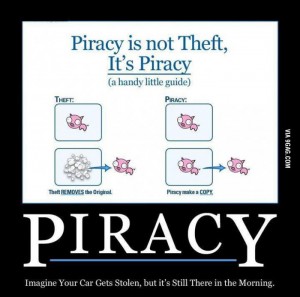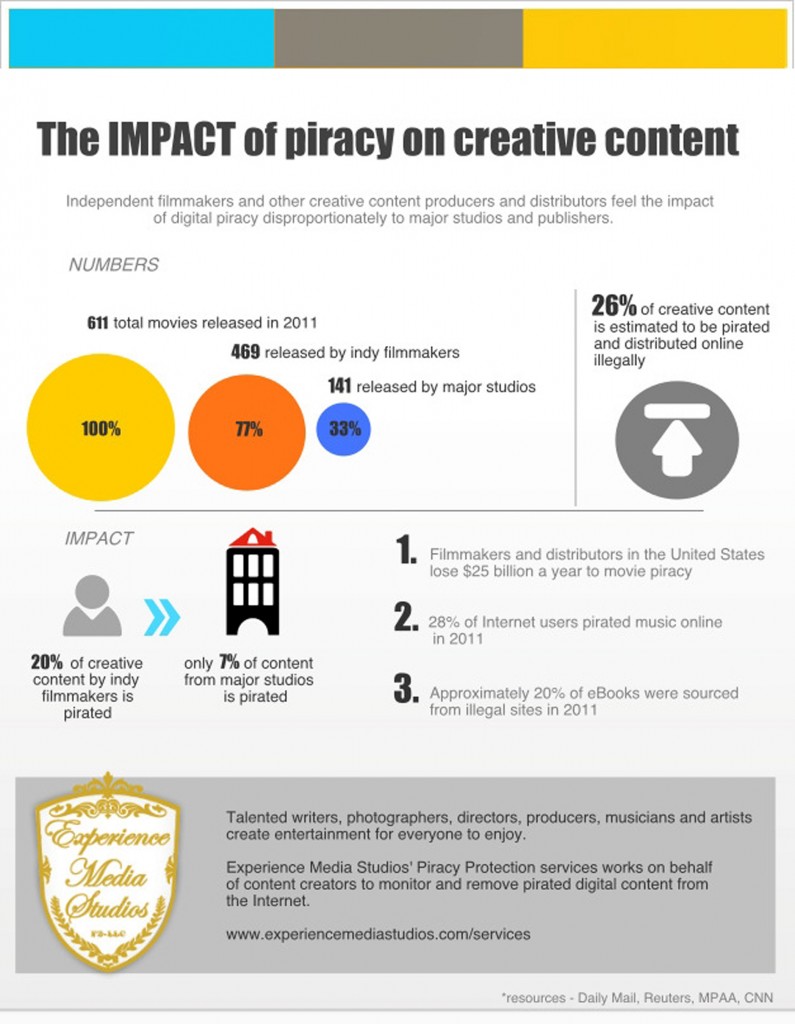Piracy Is Not Theft
 By
Michael-Ryan
·
2 minute read
By
Michael-Ryan
·
2 minute read
 I came across this “handy little guide” on the web a few days ago. People who consume illegal digital content such as movies, music, and eBooks usually have the same piracy argument that “media conglomerates can afford to take a few million less in profits,” justified by the philosophy that if a content creator has media that is duplicated yet the original left in place, then nothing has actually been stolen from the copyright owner. I’d like to make a case for the independent media producers, and financiers who support their artistic endeavors in bringing entertainment experiences to audiences.
I came across this “handy little guide” on the web a few days ago. People who consume illegal digital content such as movies, music, and eBooks usually have the same piracy argument that “media conglomerates can afford to take a few million less in profits,” justified by the philosophy that if a content creator has media that is duplicated yet the original left in place, then nothing has actually been stolen from the copyright owner. I’d like to make a case for the independent media producers, and financiers who support their artistic endeavors in bringing entertainment experiences to audiences.
One of the most common misconceptions is that giant media conglomerates release all of the Hollywood movies each year. The fact is those big media companies and their blockbusters only account for 33% of the total films released. That leaves the other 77% of independent producers and distributors who don’t have the same big marketing dollars and public capitalization to compete in the marketplace. These are the people who simply have something to say through cinema, and have to beg, borrow, and barter just to get a film made. And if by some divine miracle the movie gets made, then they get the privilege of holding on for dear life and waiting to see if the film will make back its money so they get the opportunity to make another film. These people need the support of their fans purchasing the use of their media just to pay the bills each month. Download for download; piracy affects these independent content creators and distributors so much more than it does the media conglomerates.
Media content is created to be “experienced” for enjoyment through licensing, never to be “owned.” For an artist such as a filmmaker, musician, or writer to be paid, their content must consumed for a fee. Many times, the same people are not paid for their work until the financial backers recoup all of their investment in the content, which in the case of movies, is a substantial amount of money. By distributing pirated content, two things happen. One, the financiers brave enough to take a risk on an indy artist doesn’t recoup their money from sales of the digital content, and are switched off to investing in another media venture. Two, the artists never see any money for their work because their backers' investment is never recouped enough to get in to profit participation.
Of course, I am not discounting the fact that we now live in an on-demand world. People now require the ability to instantly find media they want, download it, and enjoy it on the spot with whatever device they are near. So the industry is quickly working to catch up with these technological imperatives, and working towards offering digital media at a reasonable price where audiences are already plugged in, such as Facebook. In the meantime, audiences can show support for the indy artists, and help them succeed, by paying for their artistic work rather than taking a free pirated copy. Then they will get more opportunities to entertain us with their unique talents.
